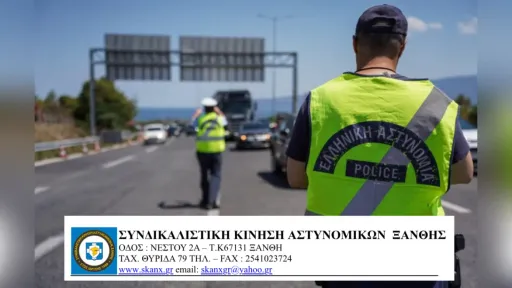Greece ordered to pay compensation for racist police violence

The European Court of Human Rights (ECHR) has condemned Greece over a 2016 incident involving the brutal mistreatment of three Romani citizens by police. The case, which highlighted systemic issues of impunity and discrimination, has reignited calls for sweeping reforms in law enforcement practices.
ECHR Condemns Lack of Investigation
In its judgment on the case Panayotopoulos and Others v. Greece, the ECHR outlined a pattern of neglect and arbitrary actions by Greek police and judicial authorities. The court found that the treatment of the Romani citizens amounted to inhuman and degrading treatment and that the subsequent investigation was grossly inadequate.
The plaintiffs, who were detained on suspicion of car theft, repeatedly requested forensic examinations to document their injuries but were ignored. “Despite photographic evidence of physical abuse and their complaints of police brutality, the authorities failed to ensure a proper medical examination, a neglect that amounts to a deliberate cover-up,” the court declared.
Failure to Investigate Racist Motivation
The ECHR also criticized Greek authorities for failing to investigate potential racist motivations behind the incident. The plaintiffs reported being subjected to racial slurs during their detention, but these claims were dismissed without inquiry.
The judgment emphasized the systemic failure to examine whether the police involved had a history of discriminatory actions against the Roma community.
Compensation and a Call for Reform
The court ordered Greece to pay €20,000 each to two of the victims and €12,000 to the third. While the financial penalties are significant, experts view the decision as a broader call for institutional reform.
Human Rights Advocate: "A Turning Point for Greece"
Panayotis Dimitras, a representative of the Greek Helsinki Monitor, hailed the ruling as a landmark decision. “This judgment thoroughly documents the unacceptable handling of disciplinary and criminal investigations in Greece,” Dimitras said. He added that the decision underscores the need to align law enforcement practices with the European Convention on Human Rights.
ECHR’s Key Criticisms
The court highlighted several serious failings in the case:
- Failure to conduct forensic medical examinations.
- Police pressure on victims to avoid testifying.
- Ignoring inconsistencies in police statements.
- Dismissing claims of racial abuse.
- Systematic neglect of discrimination against Roma in investigations.
Broader Implications
The ECHR ruling follows a series of high-profile cases involving police violence in Greece, bringing renewed attention to the issues of racism and impunity in law enforcement. The decision is expected to fuel public demand for accountability and reform.
This judgment comes at a critical moment, serving as both a financial penalty and a directive for Greece to address systemic flaws in its justice and law enforcement systems.
Source: efsyn.gr







